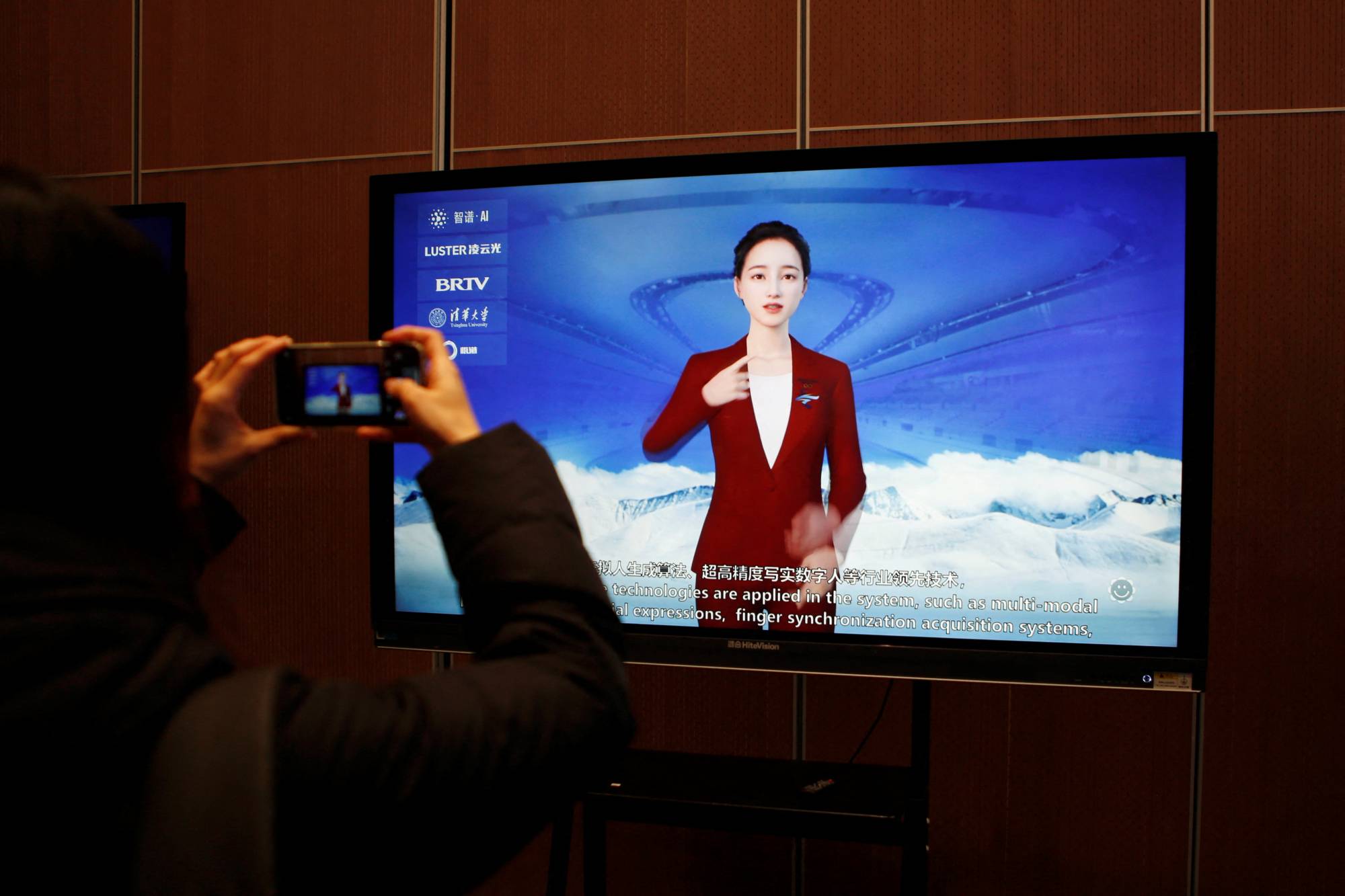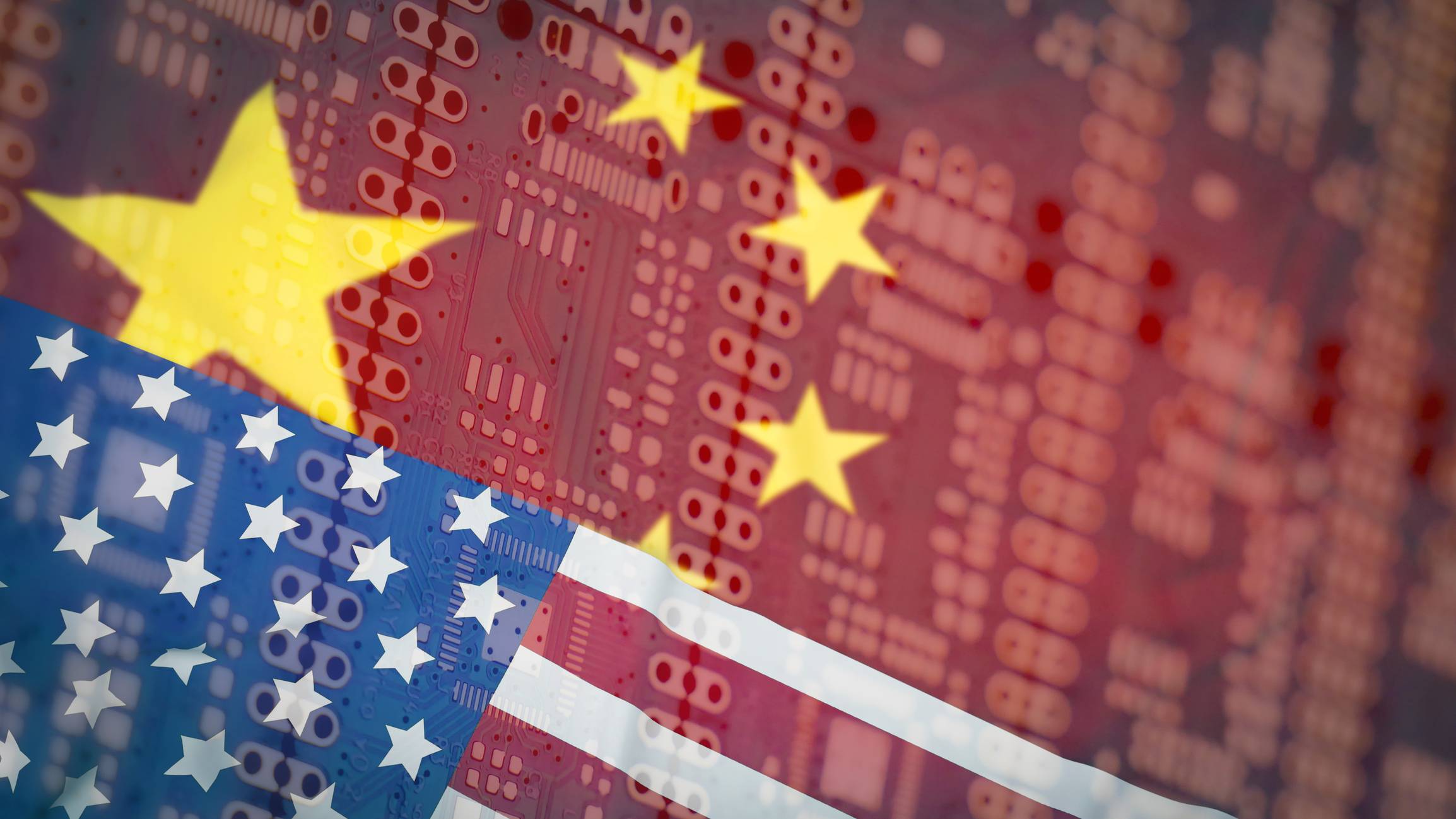GABRIEL DOMINGUEZ
With the U.S. and its allies rapidly bolstering military capabilities around Taiwan, a successful Chinese invasion, let alone an occupation, of the self-ruled island is becoming an increasingly difficult proposition.
But with the Chinese People’s Liberation Army (PLA) increasingly focused on “intelligent warfare” — a reference to artificial intelligence-enabled military systems and operational concepts — experts warn that Beijing could eventually have a new card up its sleeve: “cognitive warfare.”
The term refers to operations based on techniques and technologies such as AI aimed at influencing the minds of one’s adversaries and shaping their decisions, thereby creating a strategically favorable environment or subduing them without a fight.
“The PLA has not stated how it intends to use AI to control human cognition,” said Koichiro Takagi, an expert in military information technology and fellow at the Washington-based Hudson Institute think tank.
“But there is an active debate in China about cognitive warfare and how its development would have great appeal to Chinese policymakers, particularly in helping bring about victory in Taiwan without using conventional weapons,” he said.
Just how important AI has become for China’s national security and military ambitions was highlighted by President Xi Jinping during a rare Communist Party congress last October, where he emphasized Beijing’s commitment to the development of AI and other cutting-edge technologies. Not only does China plan to become the world’s leading AI power by 2030, Beijing has also turned to a military-civil fusion strategy to achieve this.
Both the U.S. and Chinese militaries are working toward integrating AI into three common areas: information processing, unmanned weapons and decision-making. However, Beijing is taking the technology one step further by exploring its use in cognitive warfare, which some Chinese military experts say will likely become the next most important battlefield after the physical and information space.
 A journalist documents a screen displaying a digital sign-language system run by an artificial intelligence system, during a media tour to the Beijing Academy of Artificial Intelligence in Beijing in February last year. | REUTERS
A journalist documents a screen displaying a digital sign-language system run by an artificial intelligence system, during a media tour to the Beijing Academy of Artificial Intelligence in Beijing in February last year. | REUTERSAccording to an article published last August in the PLA Daily newspaper, cognitive warfare has become “an important tool in the game of great powers” as all parties strive to achieve political goals in a “relatively controlled manner.”
The article goes on to say that it is therefore not only “urgent” but also of “practical significance” for the PLA to gain insight into the characteristics and development of cognitive operations in order to “win future wars.”
This means the PLA is actively looking at cognitive operations as a new warfare domain, alongside land, maritime, air, cyber and spatial.
“This puts AI to a very different use than most American and allied discussions have envisioned,” Takagi said, referring to how China could try and influence the thinking of decision-makers, military commanders and the general public in rival countries.
For instance, Beijing could use social media and other means to spread disinformation, including via deep fakes, and manipulate public opinion in Taiwan. It could also try to discredit U.S. efforts to support Taiwan, Takagi added.
For this to happen, China would not only need to develop the necessary cyber, psychological and social engineering capabilities but also amass a great deal of detailed personal information.
This is precisely what Washington has long accused Beijing of doing.
Takagi, who has studied AI and data mining, says China has already collected a massive amount of data on government officials and ordinary U.S. citizens, ensuring a foundation for influencing people’s perceptions.
One way of doing this has been through cyberattacks.
In 2015, the U.S. Office of Personnel Management, the agency that manages the government’s civilian workforce, discovered that some of its personnel files had been hacked, including millions of forms containing personal information gathered in background checks for people seeking government security clearances, along with records of millions of people’s fingerprints. While no definitive evidence on the origin of the perpetrators was found, the consensus is that the hack was the work of attackers working for the Chinese government.
This was no isolated incident. Five years later, the U.S. Department of Justice announced charges against what it described as four Chinese “military-backed hackers” in connection with a 2017 cyberattack against Equifax, a consumer credit reporting agency. The intrusion led to the largest known theft of personally identifiable information ever carried out by state-sponsored actors.
Takagi fears that such data could be “weaponized in the future.”
Indeed, Beijing appears to have already resorted to cognitive operations, Takagi said.
“These activities are particularly aggressive and coercive in Taiwan and Hong Kong, which the Chinese government considers its territory,” he said, noting that attempts to use digital means to influence elections were also seen in Taiwan’s 2020 presidential election. China’s People’s Liberation Army is increasingly focused on “intelligent warfare” — a reference to artificial intelligence-enabled military systems and operational concepts — that experts say could eventually help Beijing attain dominance over a new military front: cognitive warfare. | GETTY IMAGES
China’s People’s Liberation Army is increasingly focused on “intelligent warfare” — a reference to artificial intelligence-enabled military systems and operational concepts — that experts say could eventually help Beijing attain dominance over a new military front: cognitive warfare. | GETTY IMAGES
 China’s People’s Liberation Army is increasingly focused on “intelligent warfare” — a reference to artificial intelligence-enabled military systems and operational concepts — that experts say could eventually help Beijing attain dominance over a new military front: cognitive warfare. | GETTY IMAGES
China’s People’s Liberation Army is increasingly focused on “intelligent warfare” — a reference to artificial intelligence-enabled military systems and operational concepts — that experts say could eventually help Beijing attain dominance over a new military front: cognitive warfare. | GETTY IMAGESMeanwhile, the Chinese military seems to also be focusing on using AI to directly influence the state of mind of its own troops, with the PLA Daily also reporting last August that the force is working on wearable technology and a “psychological support system” to better prepare its own soldiers for real combat situations.
Soldiers in a growing number of units are being given smart sensor bracelets that can “continuously record the facial information of officers and soldiers, judge their psychological state in real time through data feedback, and archive them,” the paper reported.
The device is part of a system designed to examine and address a variety of wartime psychological problems officers and soldiers could face in combat.
The PLA regards the mental state of its soldiers as a key element in winning a conflict. “War is not only a material contest, but also a spiritual contest,” the PLA Daily said in a separate article in December.
“People are always the decisive factor in the outcome of a war, and the effective functioning of people depends on the support of a good psychological situation and stable psychological quality,” according to the article.
Nevertheless, the jury is still out on whether these new tools and technologies will ultimately be as effective as PLA experts hope.
Takagi says some of the analyses on the PLA’s use of AI and autonomous systems suggest Chinese theorists have overlooked the inherent vulnerabilities of these technologies — such as algorithmic bias due to poor quality data — and placed too much emphasis on their capabilities.
“The feasibility remains unknown and may have been overestimated out of political necessity,” he said. This may be the result of pressure exerted on the PLA by China’s leaders to come up with new ideas to unify the Chinese mainland with Taiwan, which Beijing regards as a breakaway province.
Nevertheless, Washington doesn’t want to take any chances, which is why it has imposed restrictions on the sale of advanced chips for AI and supercomputing to China
“Given that the focus of China’s military buildup is artificial intelligence, these restrictions will be highly effective, as it will be extremely difficult for China to replicate the high-end semiconductors developed in both the U.S and its partner countries in the short term,” Takagi said.
In the long term, however, China could develop its own technology and supply chains, he added.
Regardless of whether China’s “intelligent warfare” succeeds or not, it is important to pay attention to the cognitive domain in warfare, Takagi said.
“While the idea of directly influencing the human mind is not new, it may become increasingly feasible thanks to the advances in AI technology.”

No comments:
Post a Comment